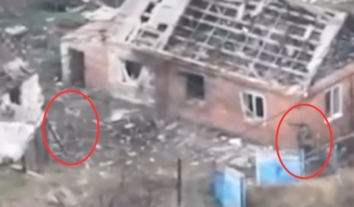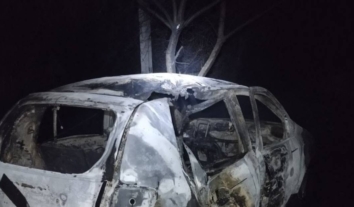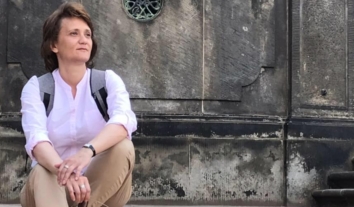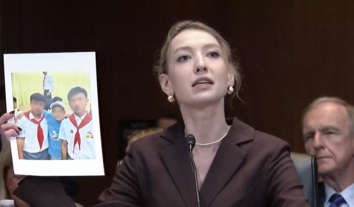Attacks on LGBT-activists in Ukraine remain unpunished – human rights defenders
Before the Equality March in Kyiv, human rights defenders draw attention to the menacing situation with activists who advocate for the rights of the LGBT-community in Ukraine: a number of attacks on activists and their offices, threats, beatings were recorded three years after the Euromaidan. None of these cases has been effectively investigated and the perpetrators have not been brought to justice, as reported by Tetiana Pechonchyk, Chair of the Board of the Human Rights Information Centre, during a press conference in Kyiv.
This organization has prepared monitoring of harassment and persecution of human rights defenders and civil society activists on government-controlled territories of Ukraine over the past three years.
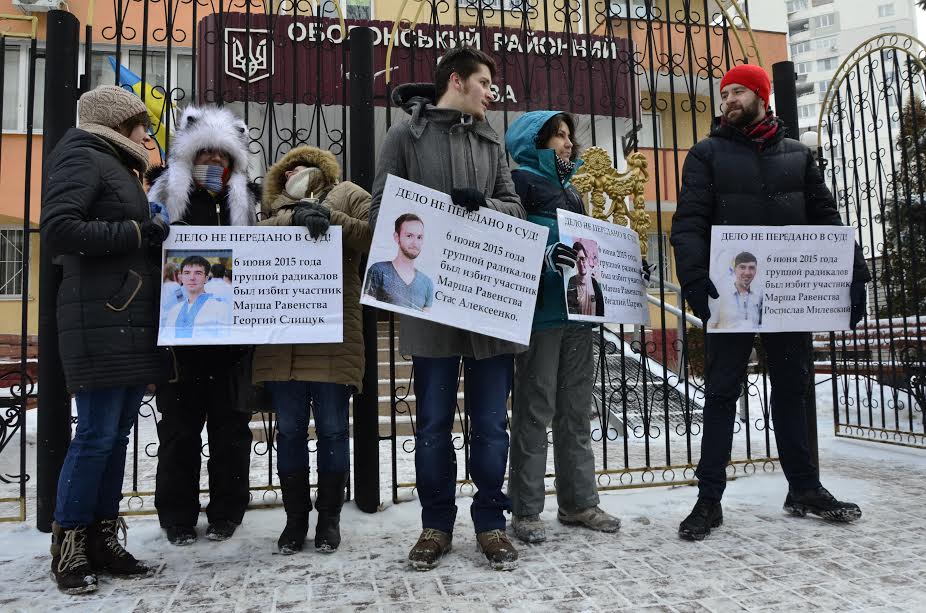
“We observed a wave of attacks and physical violence against various groups of activists. One of the groups systematically subjected to such persecution are LGBT-activists – people who are the most visible and most actively defending rights of the entire community”, – the human rights defender said.
In a number of cases, police has not initiated criminal proceedings or misclassified the attacks (not seeing a homophobic motive in them), in other cases the victims themselves have not applied to law enforcement bodies because of fears for their safety or lack of trust to the law enforcement system.
“This is a systematic problem, the root of which lies in the lack of legislation on hate crimes and the reluctance of law enforcement agencies to change existing practices”, – Zoryan Kis, coordinator of Freedom House projects in Ukraine said.
According to him, Article 161 of the Criminal Code of Ukraine (violation of citizens’ equality based on their race, nationality, religious preferences, disability and other grounds) is not functioning, as attacks on LGBT-activists are classified as hooliganism and are “shuffled under the rug”.
“This has happened in my case, when despite the resonance and the presence of video evidence, the case was closed after a year of so-called “investigation”. We still cannot receive a resolution on the closure of the case”, – Zoryan Kis added.
Oksana Guz, lawyer and Senior Partner of the Prove Lawyer Association, said that the police does not qualify attacks on LGBT-activists as hate crimes, since they believe that it is easier to prove guilt for another qualification, and besides police lack the appropriate training. According to her, other possible reasons for not wanting to enter data that testify on the motive of belonging to LGBT-people are homo/transophobia of law enforcement officers and a lack of understanding of the specifics of the investigation.
Tetiana Pechonchyk emphasized that the lack of effective investigation by law enforcement agencies and the total impunity of criminals leads to new crimes and “to an ever-growing spiral of violence”: “In some cases, attacks were repeated due to the lack of response from the legal system, for example, as it happened with Nick Carter. Due to this threatening situation, many activists were forced to leave Ukraine and go abroad”.
“Hate crime is a global problem for many countries, and Ukraine is no exception. Although in recent years Ukrainian authorities have made some progress in protecting human rights of LGBTIQ, activists are still being threatened and attacked and radical nationalist groups repeatedly disrupt LGBTI events across Ukraine feeling their impunity, – Oksana Pokalchuk, Executive Director of the Amnesty International Ukraine commented. – The positive change is that now hate crimes are being recognized. However, it is important to go further. There should be an effective investigation of such cases and punishment of the perpetrators of these crimes”.
Katarzyna Wenzel, representative of the Helsinki Foundation for Human Rights (Poland), said that impunity is one of the main problems that was brought to notice by the UN Special Rapporteur on the situation of human rights defenders in the world.
“Unfortunately, countries often do not effectively investigate threats, physical violence and damage to the property of LGBT-activists, identities of the perpetrators are not established, and criminal proceedings – if initiated – often ends with those responsible not being brought to justice”, – she said.
“The next year, 2018, will mark the 70th anniversary of the Universal Declaration of Human Rights and the 20th anniversary of the UN Declaration on Human Rights Defenders. These documents impose an obligation on the states of the world to guarantee the protection of human rights and freedoms. This means that the authorities must conduct quick and impartial investigations into violations of the rights of human rights defenders”, – Katarzyna Wenzel added.
Human rights organizations urge the Ukrainian authorities to put an end to impunity for crimes against LGBT-activists and to effectively investigate all attacks and threats.

